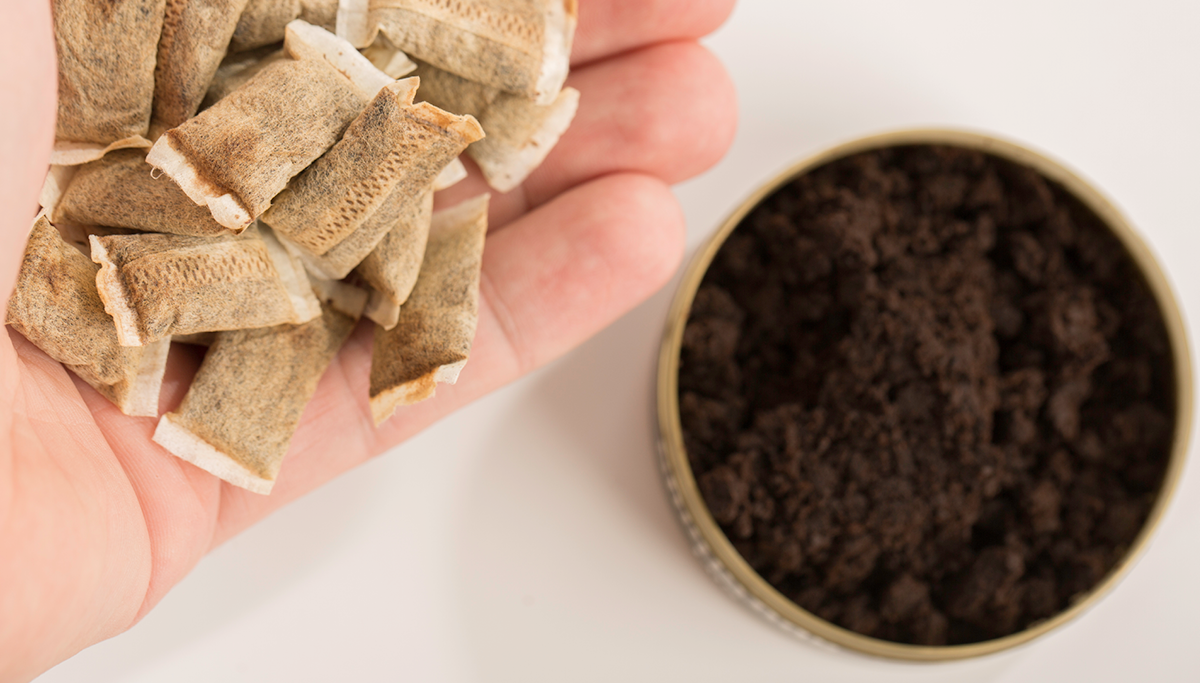Chewing tobacco leads to serious oral health issues
In South Dakota, six percent of adults use chewing tobacco – higher than the national average of four percent. Even more alarming, nearly 12 percent of high school seniors say they used chewing tobacco in the past 30 days.
Loaded with nicotine and stuffed in the mouth, using chewing tobacco is addictive and can lead to serious oral health issues, including:
- Oral cancer,
- Tooth decay and cavities,
- Recession of the gums
- Gum disease,
- Mouth lesions and leukoplakia, and
- Loose teeth.
Brushing and flossing don’t offset its harmful effects.
At Delta Dental of South Dakota, we’re big fans of a healthy smile and want you to know free help is available to help you break the chewing habit. Reach out to our friends at the SD QuitLine for helpful tips, resources, and personal coaching.
Not quite convinced? Keep reading to learn more about the dangers chewing tobacco presents to your mouth.
What is chewing tobacco?
There are many names for chewing tobacco including smokeless tobacco, spit tobacco, chew, chaw, plug, pinch, or dip. Unlike cigarettes, chewing tobacco is not inhaled. Instead, it’s placed and held in the mouth. The user will either spit out or swallow the juice produced from the tobacco.
Chewing tobacco is not safer than cigarettes
Chewing tobacco is often assumed to be safer because it isn't inhaled and is not directly linked to lung disease. In fact, chewing tobacco can be even more addictive than cigarettes. One 30-minute dip of chew can deliver as much nicotine as three cigarettes. Nicotine has been shown to be as addictive as narcotic drugs like heroin and cocaine. And that’s not to mention the 28 chemicals in chewing tobacco known to cause cancer, like formaldehyde and arsenic.
Effects of chewing tobacco on oral health
Chewing tobacco can lead to many serious oral health problems:
- Oral cancer: chewing tobacco users have an 80 percent higher risk of developing oral cancer and a 60 percent higher risk of esophageal cancer. These cancers can form within five years of regular use.
- Tooth decay: chewing tobacco users are four times more likely to have decayed dental root surfaces.
- Oral lesions and leukoplakia: more than half of daily users of smokeless tobacco had sores in the mouth. Leukoplakia – an oral disease with white patches and lesions in the mouth - is also associated with chewing tobacco use.
- Gum disease: tobacco use is a significant factor in periodontal disease, which in turn is linked with increased risk of heart disease, stroke, and diabetes.
Plus, there’s the stained teeth and bad breath too.
If you or a loved one notices any changes in their oral health, it’s important to visit the dentist for further evaluation.
Quitting chewing tobacco is possible
Quitting chewing tobacco can be difficult but not impossible. Small changes such as removing all chewing tobacco products from the home, building a support team, and avoiding triggers can help start the journey.
The South Dakota QuitLine provides many free resources to help you quit tobacco for better oral and overall health.

